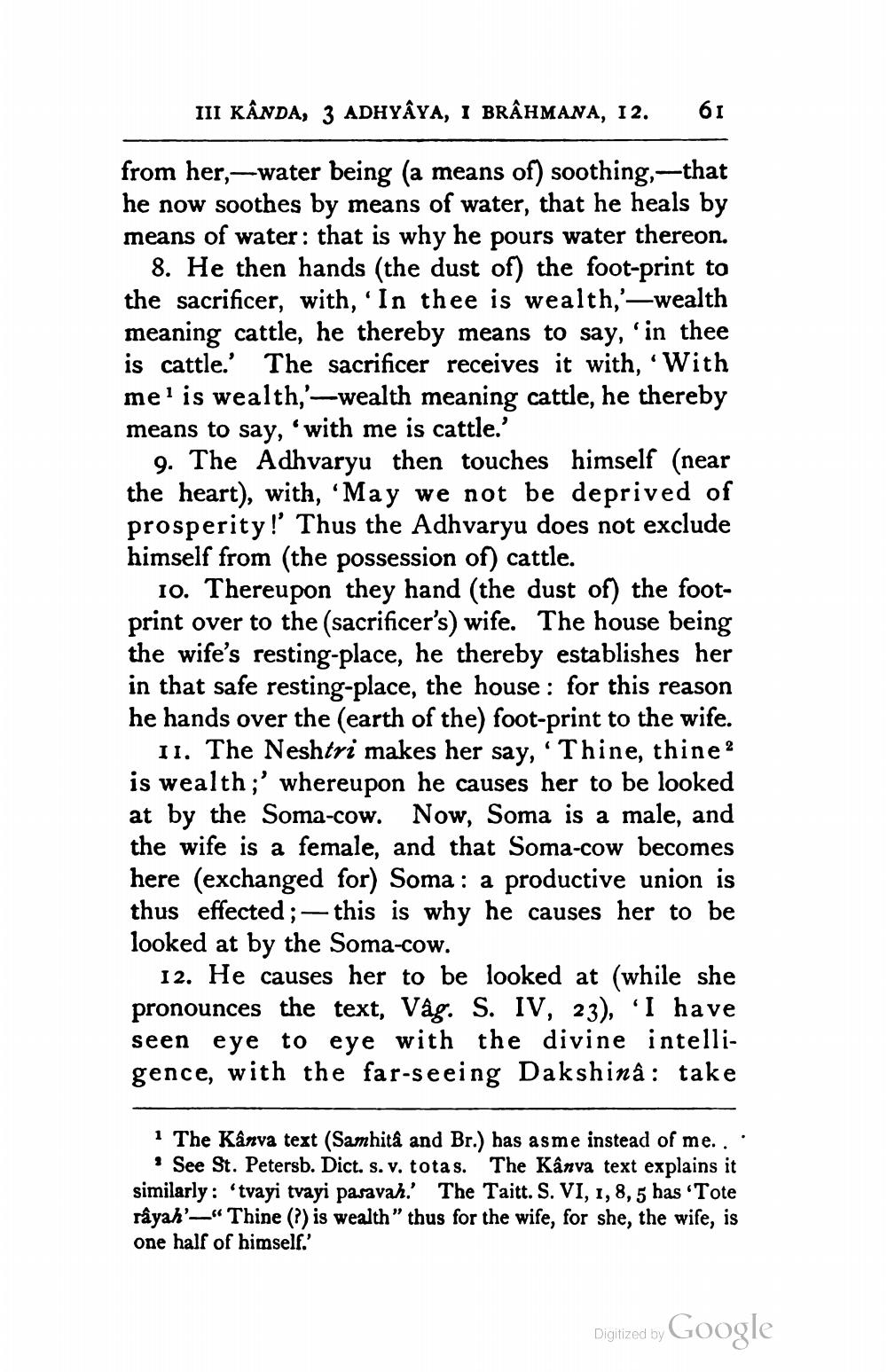________________
III KÂNDA, 3 ADHYAYA, I BRÂHMANA, 12.
61
from her,-water being (a means of) soothing,—that he now soothes by means of water, that he heals by means of water : that is why he pours water thereon.
8. He then hands (the dust of) the foot-print to the sacrificer, with, 'In thee is wealth,'—wealth meaning cattle, he thereby means to say, 'in thee is cattle. The sacrificer receives it with, With me' is wealth,'-wealth meaning cattle, he thereby means to say, 'with me is cattle.'
9. The Adhvaryu then touches himself (near the heart), with, 'May we not be deprived of prosperity! Thus the Adhvaryu does not exclude himself from (the possession of) cattle.
10. Thereupon they hand (the dust of) the footprint over to the (sacrificer's) wife. The house being the wife's resting-place, he thereby establishes her in that safe resting-place, the house : for this reason he hands over the (earth of the) foot-print to the wife.
11. The Neshtri makes her say, 'Thine, thine ? is wealth;' whereupon he causes her to be looked at by the Soma-cow. Now, Soma is a male, and the wife is a female, and that Soma-cow becomes here (exchanged for) Soma: a productive union is thus effected ;- this is why he causes her to be looked at by the Soma-cow.
12. He causes her to be looked at (while she pronounces the text, Våg. S. IV, 23), 'I have seen eye to eye with the divine intelligence, with the far-seeing Dakshina: take
1 The Kânva text (Samhita and Br.) has asme instead of me...
· See St. Petersb. Dict. s. v. totas. The Kanva text explains it similarly : 'tvayi tvayi pasavah.' The Taitt. S. VI, 1, 8, 5 has Tote râyah'_“Thine (?) is wealth” thus for the wife, for she, the wife, is one half of himself.'
Digitized by Google




